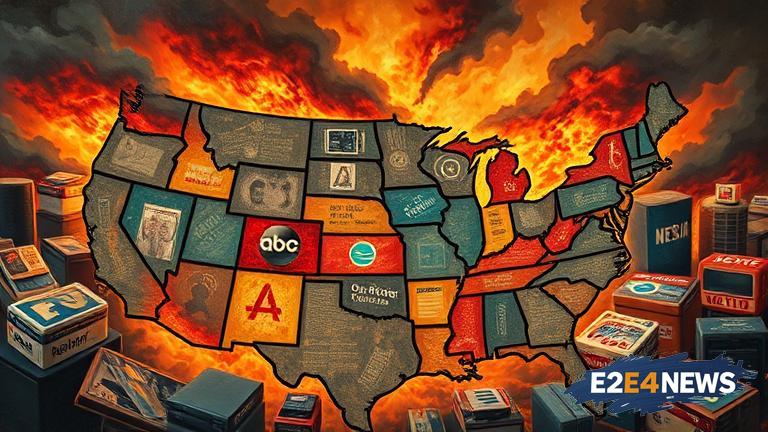The American press has been a cornerstone of democracy, providing citizens with the information they need to make informed decisions. However, in recent years, the media landscape has undergone significant changes, leading many to question its credibility. With the rise of social media and the 24-hour news cycle, the press has become increasingly sensationalized, prioritizing clicks and ratings over fact-based reporting. This has led to a decline in trust, with many Americans feeling that the media is more interested in pushing a particular agenda than in reporting the truth. The proliferation of fake news and propaganda has further eroded trust, making it difficult for citizens to discern fact from fiction. The media’s obsession with controversy and scandal has also led to a lack of depth and nuance in reporting, with complex issues being reduced to simplistic soundbites. Furthermore, the increasing polarization of the media has created an echo chamber effect, where people are only exposed to information that confirms their existing biases. This has led to a lack of civil discourse and an increase in partisan divisions. The role of social media in amplifying biased and misleading information has also been a major contributor to the decline of trust in the media. Many have argued that the media’s focus on entertainment over education has led to a dumbing down of the news, with serious issues being treated as spectacle rather than substance. The lack of diversity in the media has also been a major issue, with many outlets being dominated by a particular perspective or ideology. This has led to a lack of representation and a failure to reflect the diversity of the American people. The media’s reliance on anonymous sources and leaks has also been a major problem, with many stories being based on unverified information. The use of loaded language and emotive appeals has also been used to manipulate public opinion, rather than to inform and educate. The media’s failure to hold itself accountable has also been a major issue, with many outlets being reluctant to admit mistakes or correct errors. The rise of alternative media outlets has also challenged the traditional media landscape, with many people turning to online sources for news and information. However, these outlets are often unregulated and lack the standards and ethics of traditional journalism. The impact of the decline of trust in the media has been significant, with many Americans feeling disillusioned and disconnected from the political process. The media’s role in shaping public opinion and influencing policy has also been called into question, with many arguing that the media has become too powerful and too influential. The need for media literacy and critical thinking has become increasingly important, as citizens need to be able to navigate the complex and often confusing media landscape. Ultimately, the future of the American press depends on its ability to adapt to the changing media landscape and to regain the trust of the American people. This will require a commitment to fact-based reporting, diversity, and accountability, as well as a willingness to listen to and engage with critics and skeptics. By doing so, the media can once again become a trusted and credible source of information, and a vital component of a healthy and functioning democracy.





